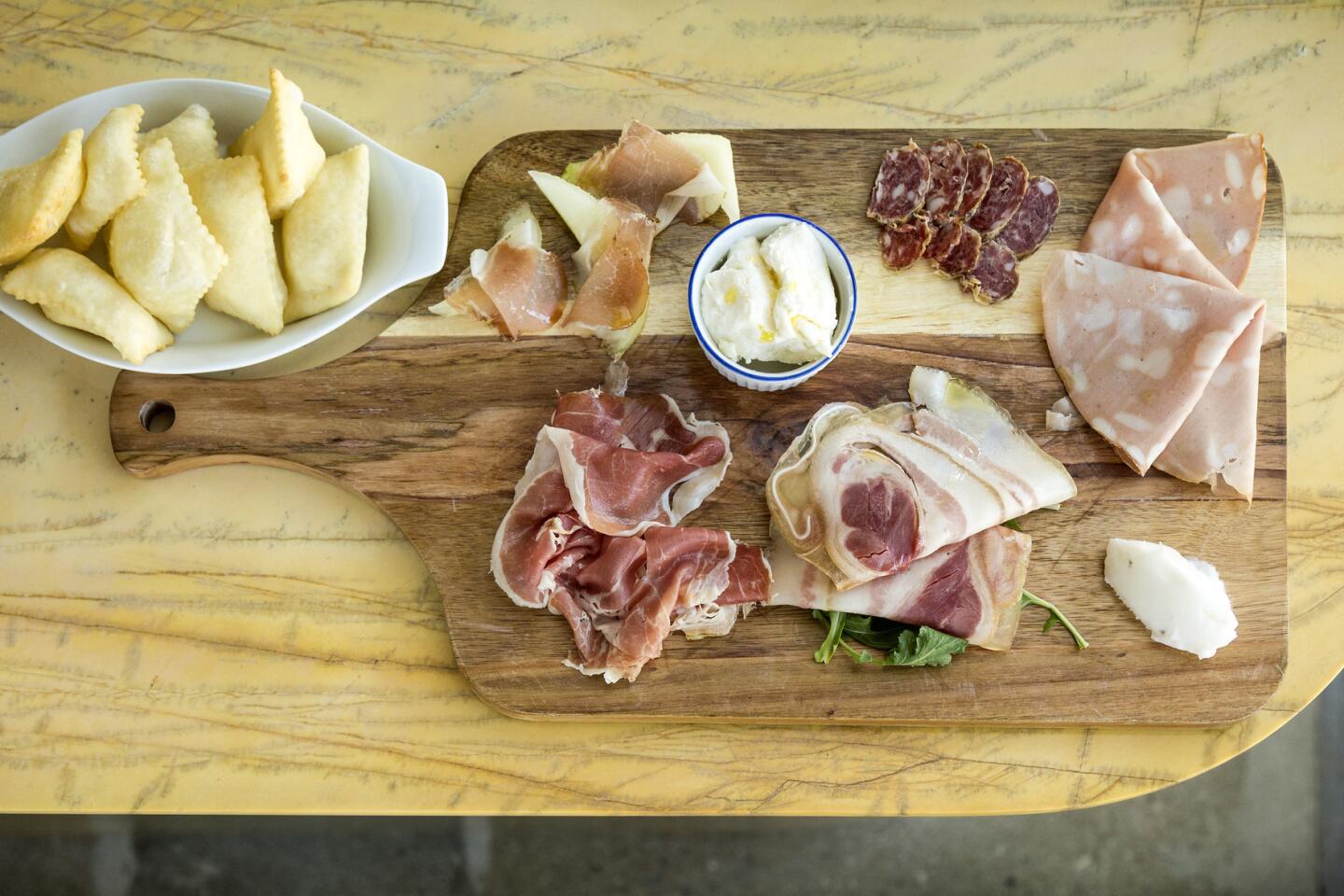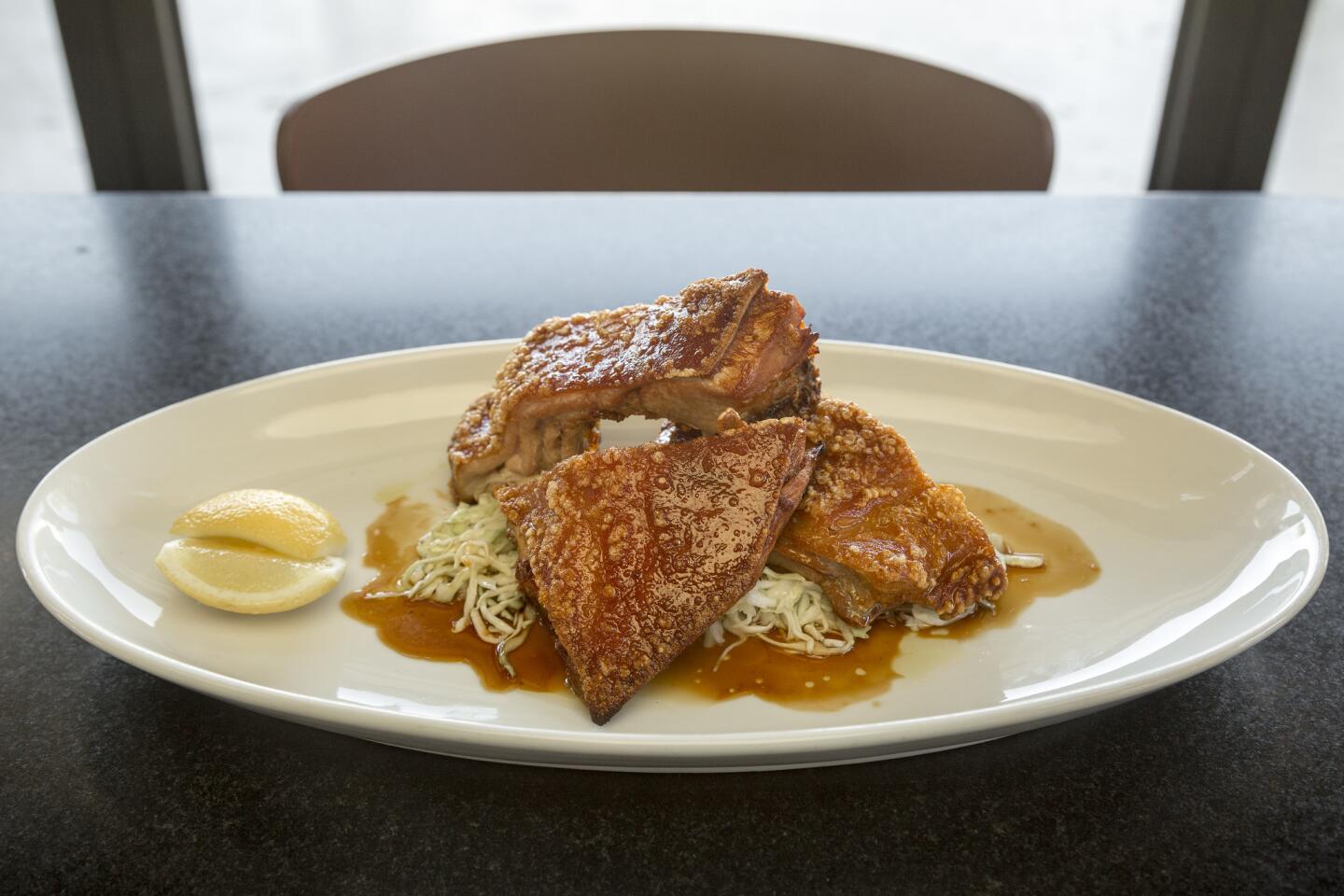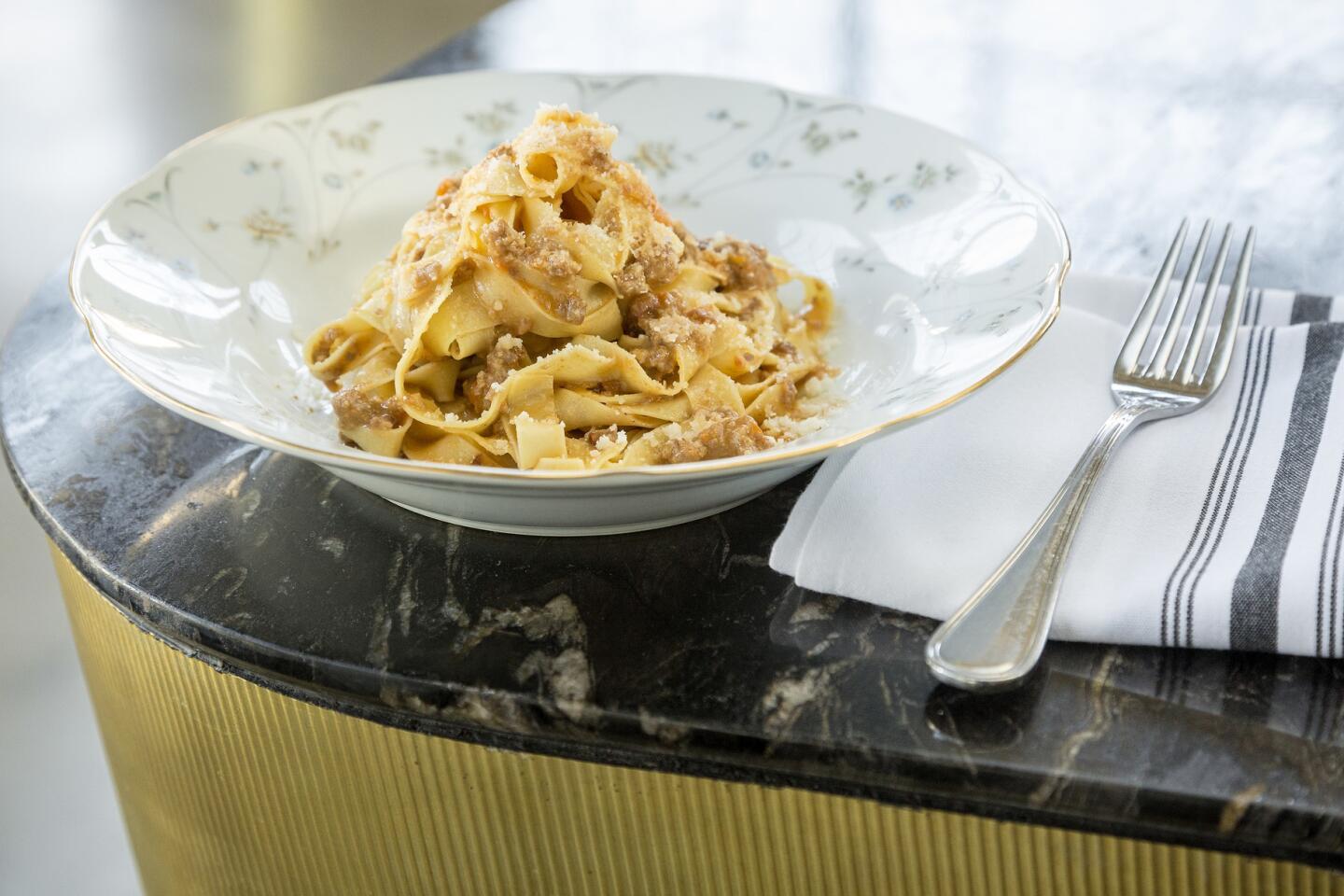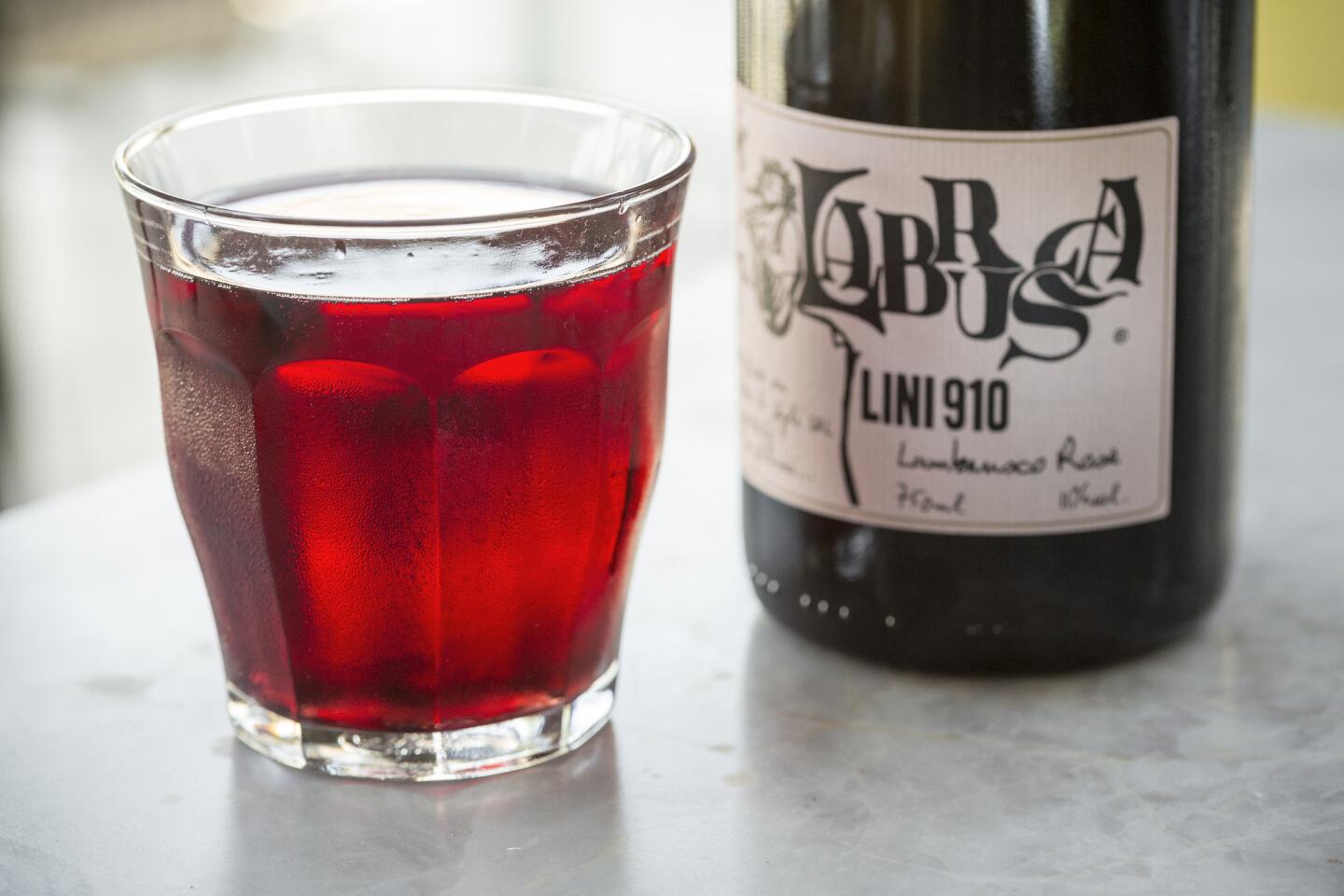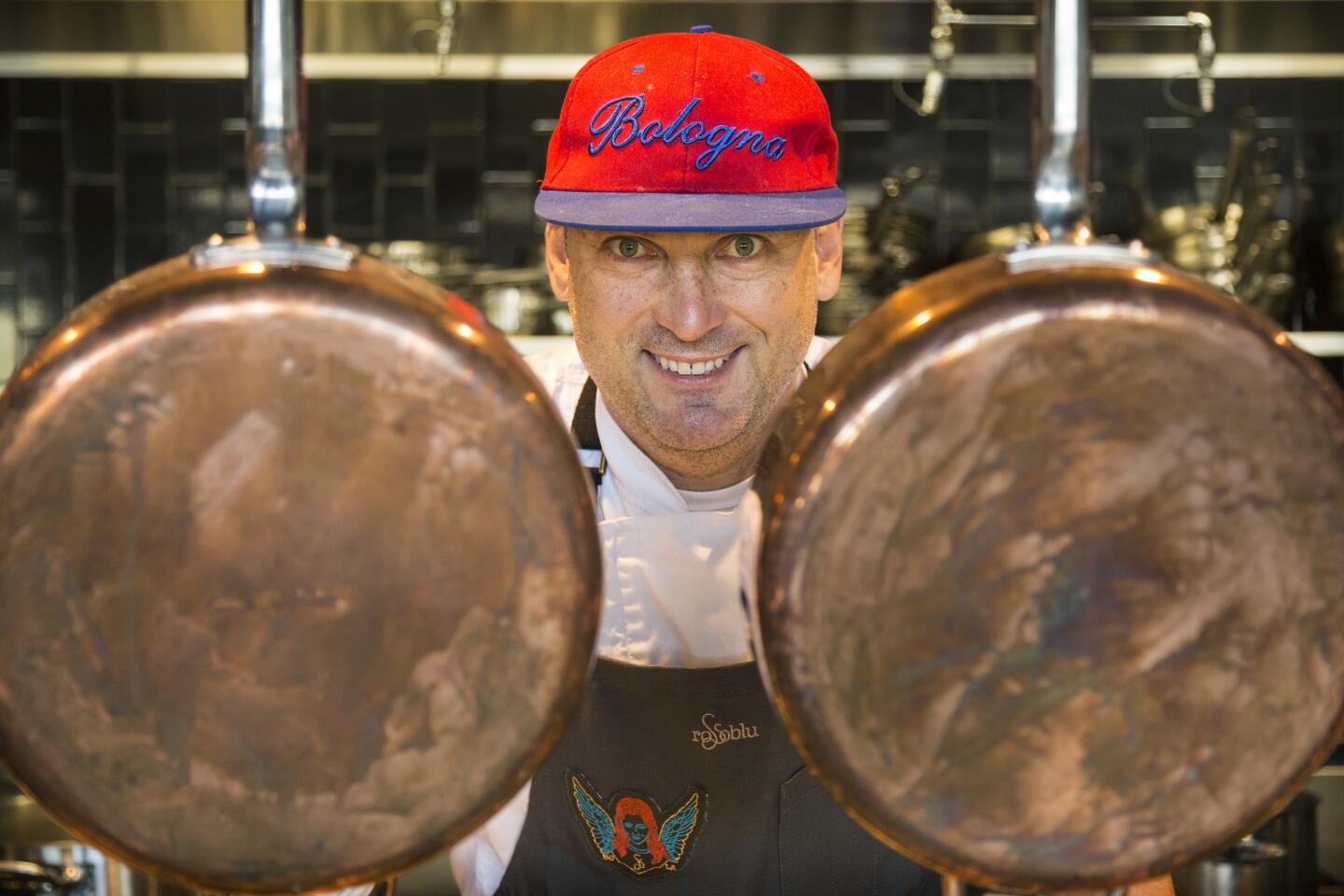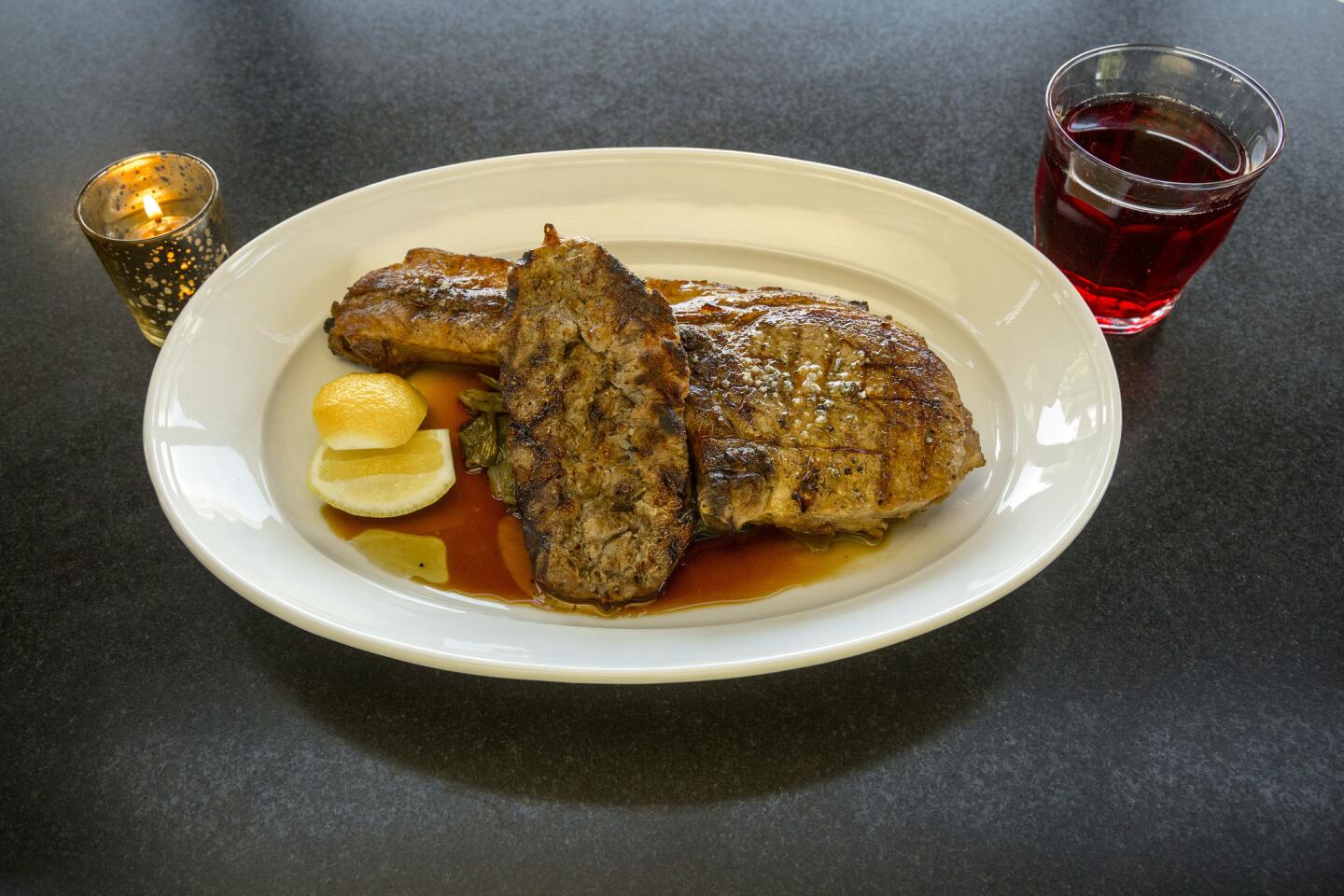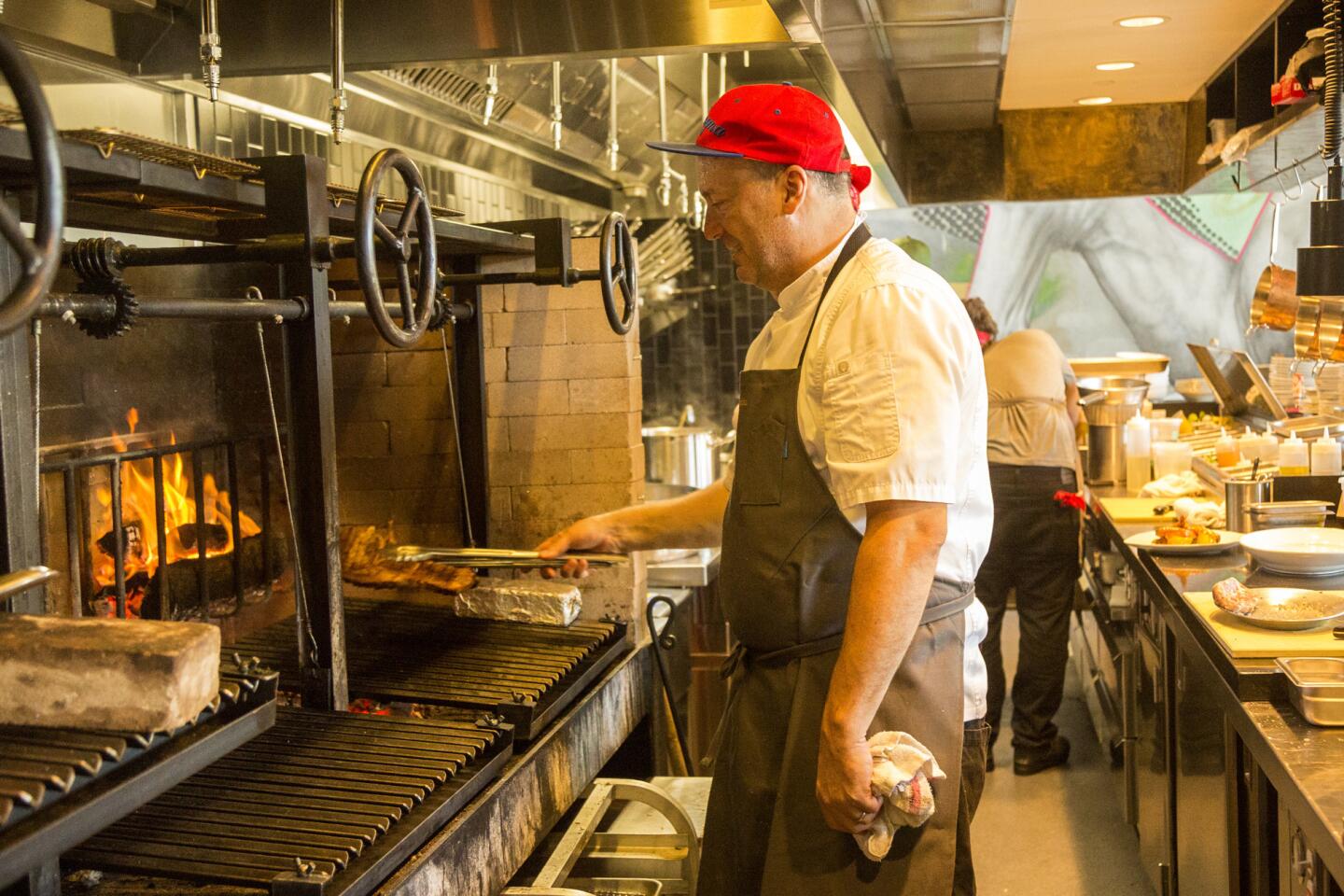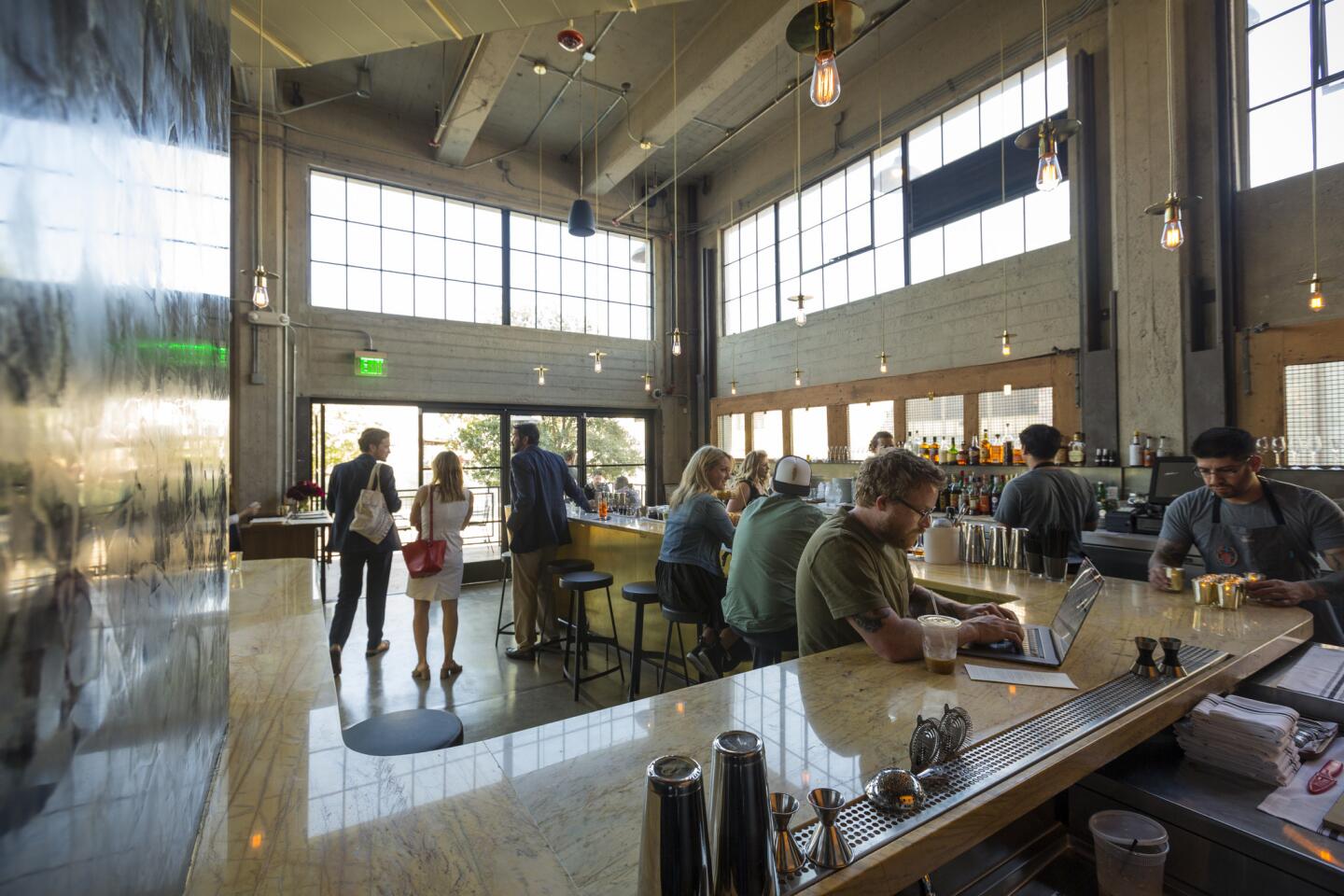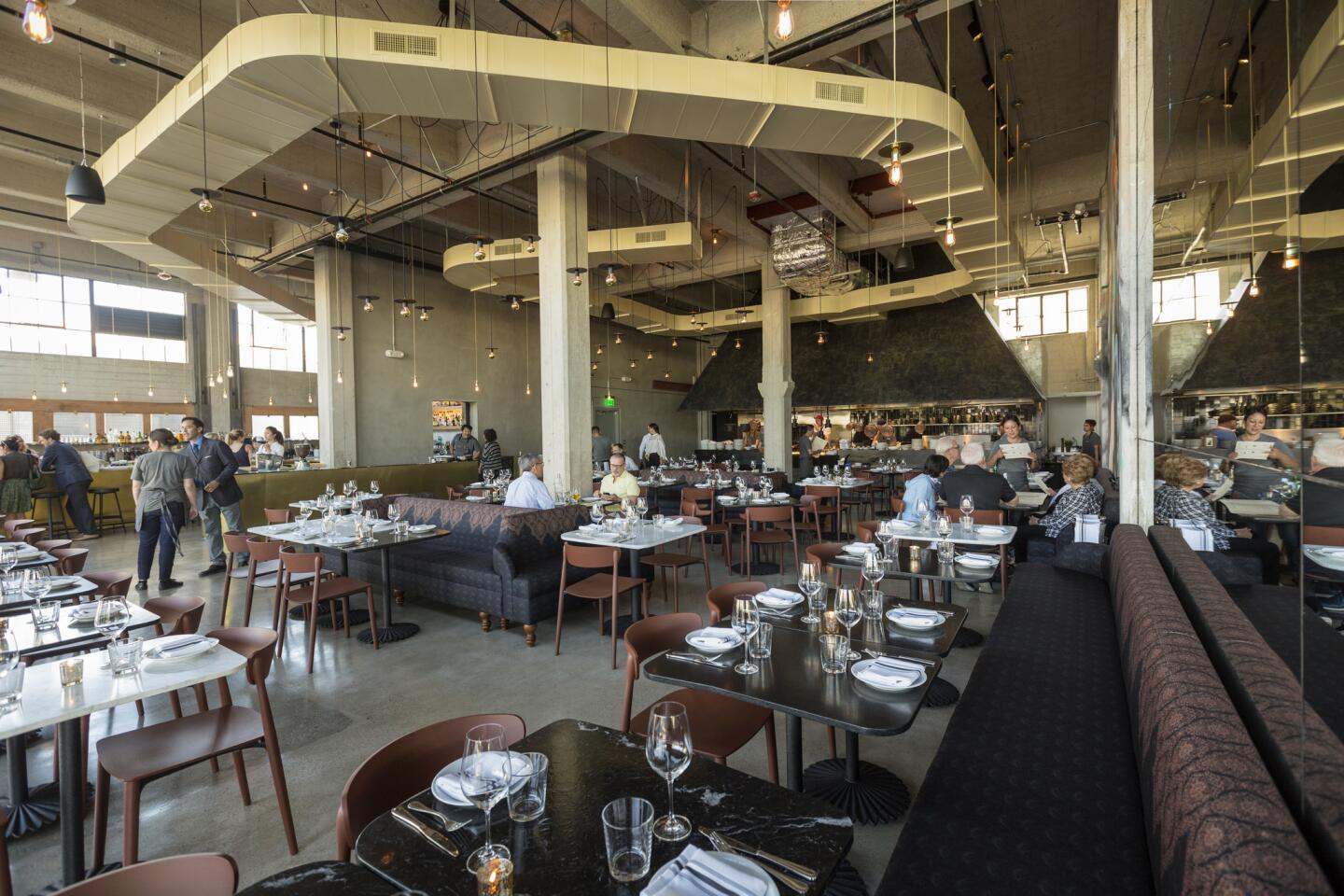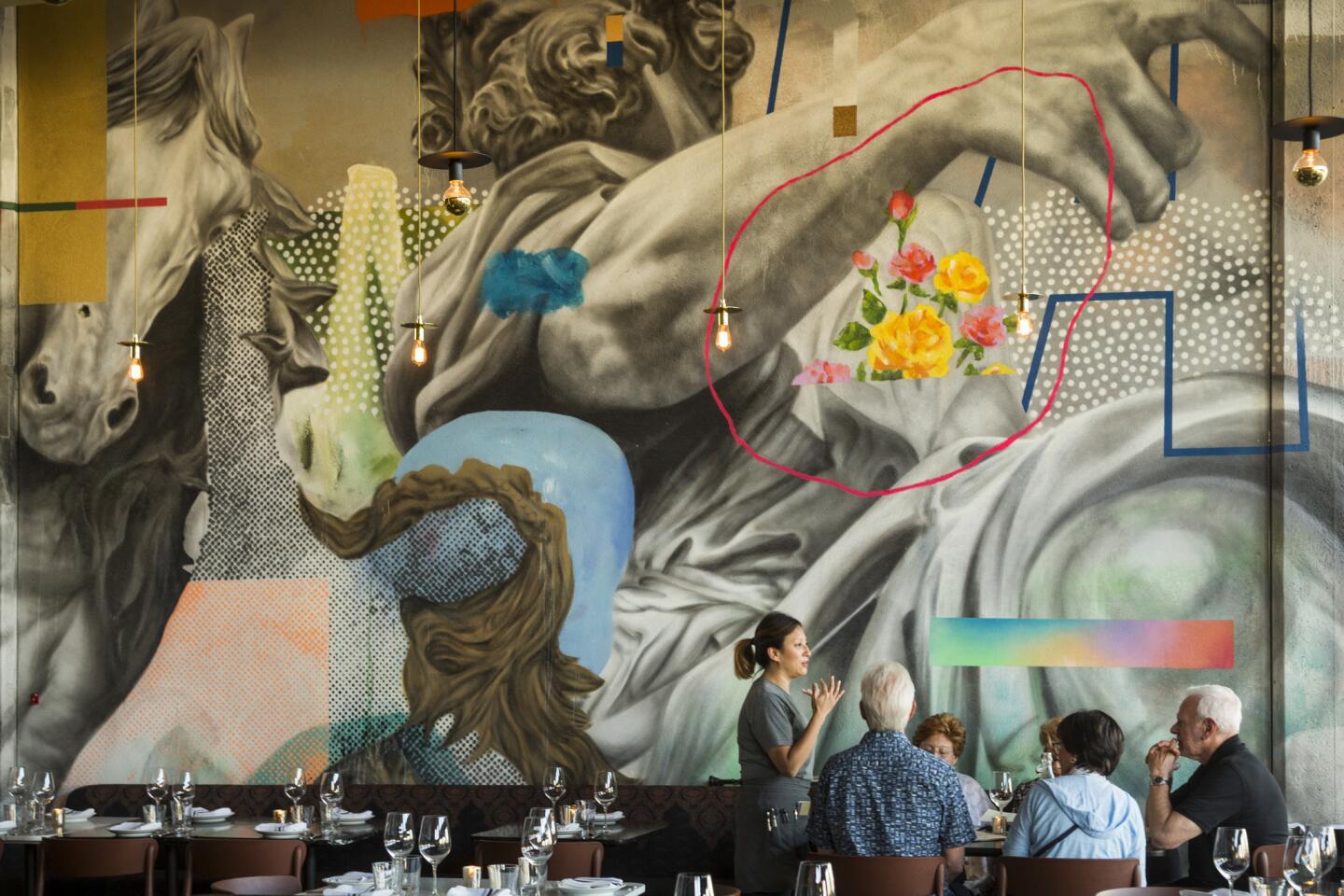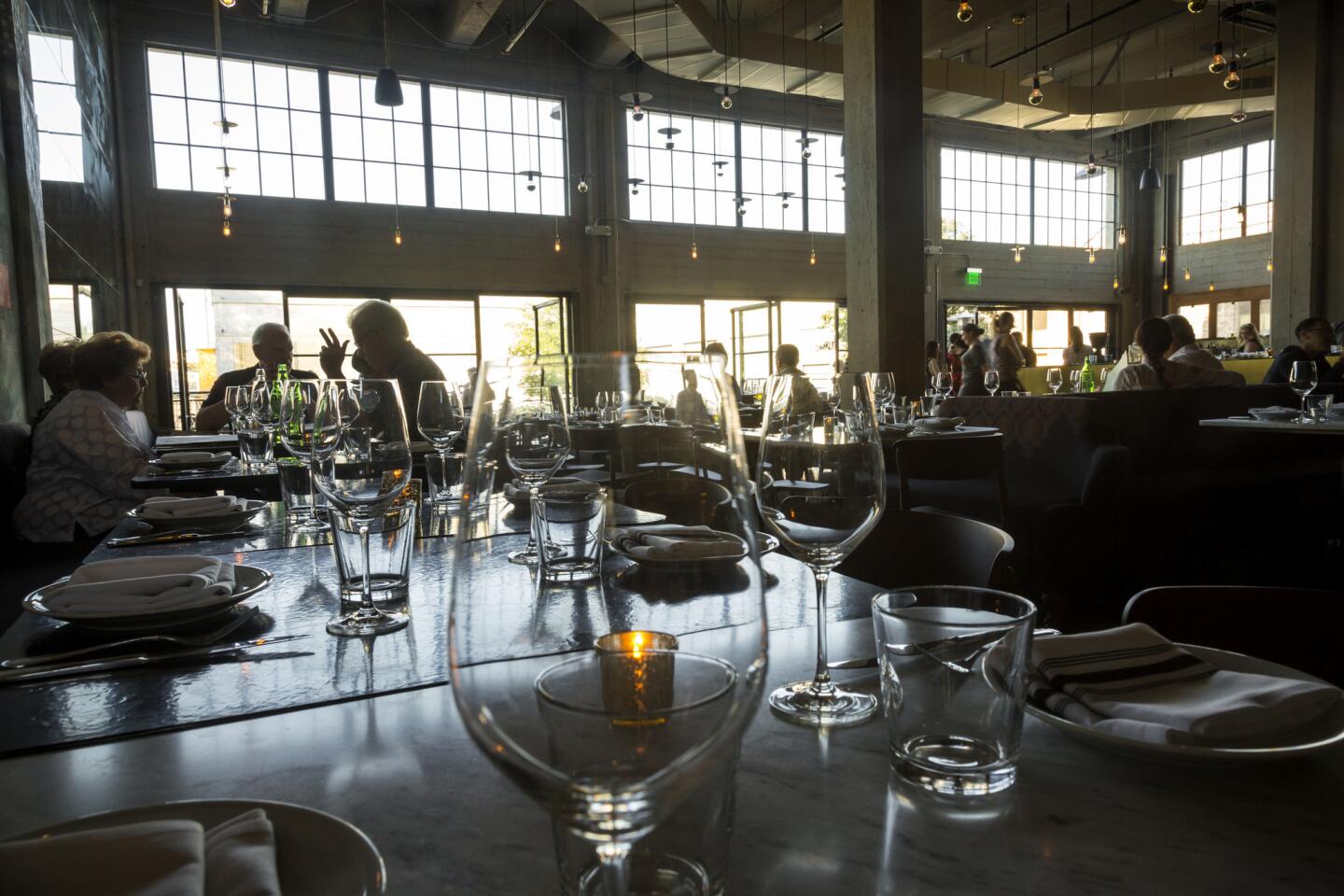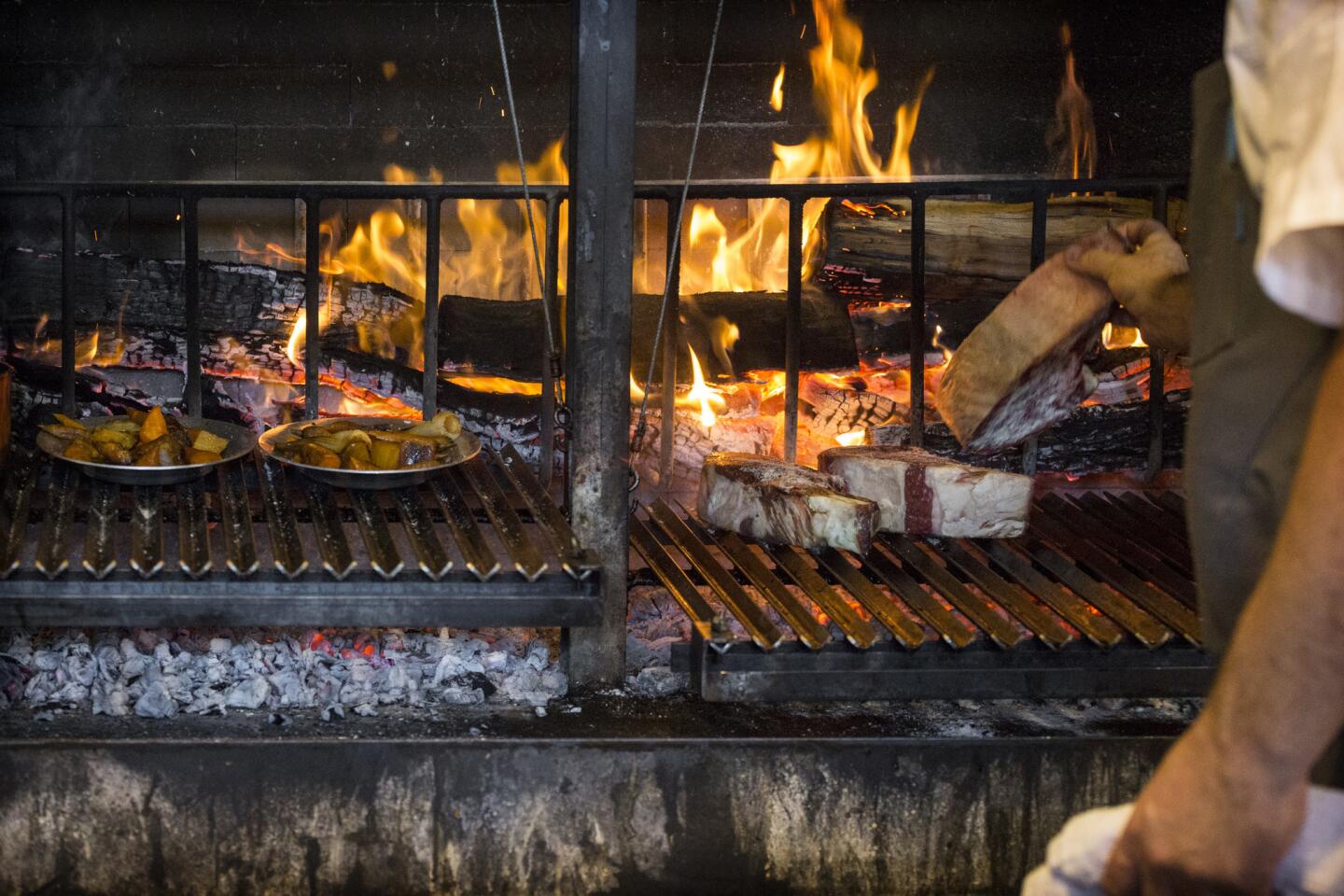Review: Jonathan Gold says Rossoblu may make you wish you knew a Bolognese grandmother
Have you tasted the minestra nel sacco at Rossoblu, more or less a bowl of chicken soup with dumplings cooked in a cloth bag? It’s a pretty common dish in the area around Bologna, and you’ll find lots of recipes for it in Italian cooking magazines.
I have talked to people who make it with linen sacks sewn by their grandmothers. It is possible to construct a reasonable version by wrapping the dough of flour, Parmesan cheese and egg tightly in a clean napkin before boiling, a version sometimes known as royale Bolognese, but the woman who instructs you may have a slight edge of pity in her voice. She knows you come from a family who didn’t love you enough to leave you a proper sack.
I’ve never seen minestra nel sacco on a menu in Italy — it’s a simple home dish; everybody in Emilia-Romagna gets the much more complicated tortellini in brodo instead. And at Rossoblu, where the square little dumplings are released from the sack at table into the bowl of broth into which it is immersed, the dish is positively exotic: Bolognese grandmother cooking introduced into a city where few Bolognese grandmothers exist. Would I be pushing things if I confessed that the minestra nel sacco reminded me a lot of the Xi’an bread-in-soup dish called paomo? In Los Angeles, things are complicated.
If you have spent a certain amount of time reading the food press lately, you are probably under the impression that Los Angeles is living in an age of kitchen intersectionality, where Filipino and Oaxacan cuisines are finally coming to the foreground; second-generation chefs from Mexican and Korean backgrounds are dominating the conversation; and that the latest word in cooking comes from a region of China you couldn’t point out on a map. I’ve written a lot of those articles myself.
But if you base your ideas about the local food scene on what is actually opening instead of what you read online, it is pretty hard to deny that we are also going through yet another Italian phase — the parade of authentic pizzerias, pasta parlors, caffes, Negroni dens and restaurants specializing in the cooking of the Amalfi coast continues without cease.
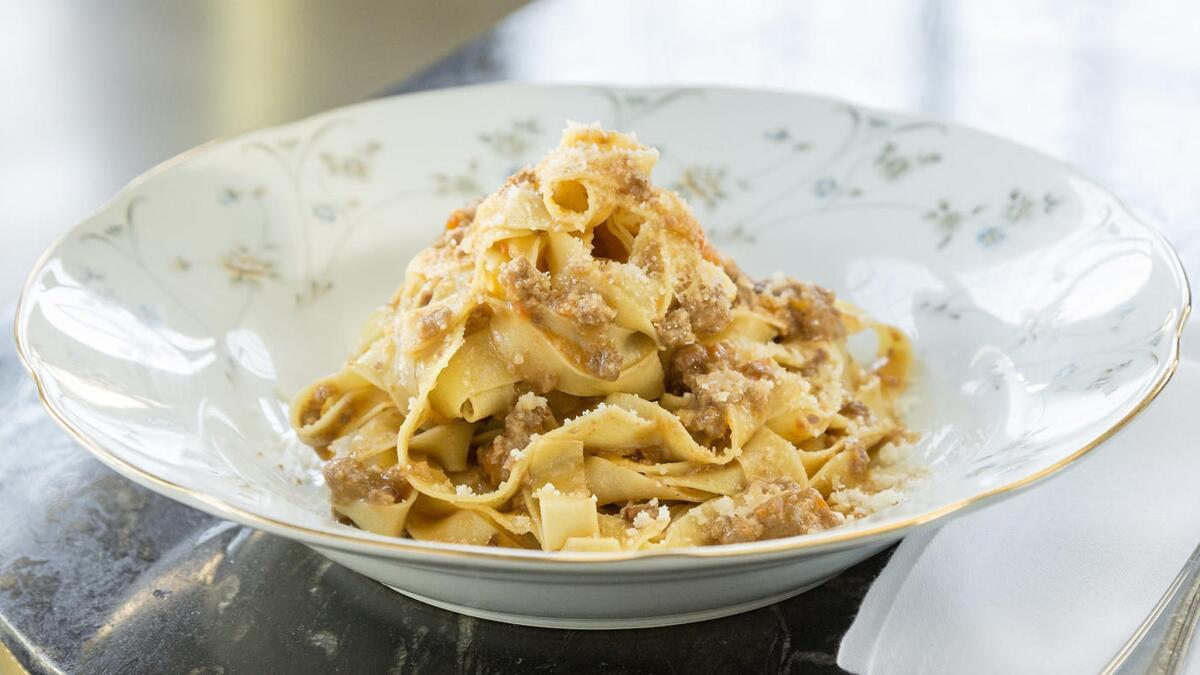
Rossoblu is the new Bologna-focused restaurant from the chef Steve Samson, who started Pizzeria Ortica and Sotto with now-Alimento chef Zach Pollack. It is a startlingly large space built into the City Market South complex, which architectural drawings project as a lovely plaza, although now it is mostly bare concrete. At dusk, San Julian Street, on which the complex is located, is as desolate as a De Chirico painting. After dark, the huge Bendix sign a few blocks away bathes the area in a ghostly neon-red glow.
Rossoblu, presumably named for the colors of Bologna’s soccer team, is full, bustling even. There is a busy bar, the makings of a terrace, and a sprawling dining room dominated by the open kitchen, a wood fire and a huge wall mural by the local collective Cyrcle that looks like one of Francesco Clemente’s Palio paintings channeled through Roy Lichtenstein. The wine list is small but appropriate — if you’ve spent much time in Bologna, you’ll be delighted to see a sparkling Pignoletto, which is a nice aperitif — try it with a barely warmed oyster drizzled in browned butter. There is an entire roster of fizzy red Lambruscos to go with the rich pastas and cured meats.
And it is possible to drop by Rossoblu, order a glass of Lambrusco and a salumi board, and be perfectly happy working through soft, fragrant slices of mortadella, extra-aged Parma prosciutto, and delicate lonza, cured pork loin. The crescentini, puffs of fried dough, are delicious with the soft cheese called squacquerone and a smear of the creamy cured beef fat. The testa makes no effort to disguise its origins as a pig’s head. The Felino-style salami is extra-funky. The meat plate is a good way to kill an hour, supplemented perhaps with a slice of Swiss chard tart whose crust is too sturdy to cut without a steak knife; thinly sliced eggplant with tomato and basil; or a plate of tiny, fragile braised meatballs that have half-collapsed into their sauce.
Like most of the restaurants that have opened this decade, the menu at Rossoblu is based around the idea of family-style eating, which means that servings tend to be on the big side, and that a plate of risotto with morels, maltagliata pasta with mushrooms or delicate tagliolini with peas and cuttlefish is easily enough for four.
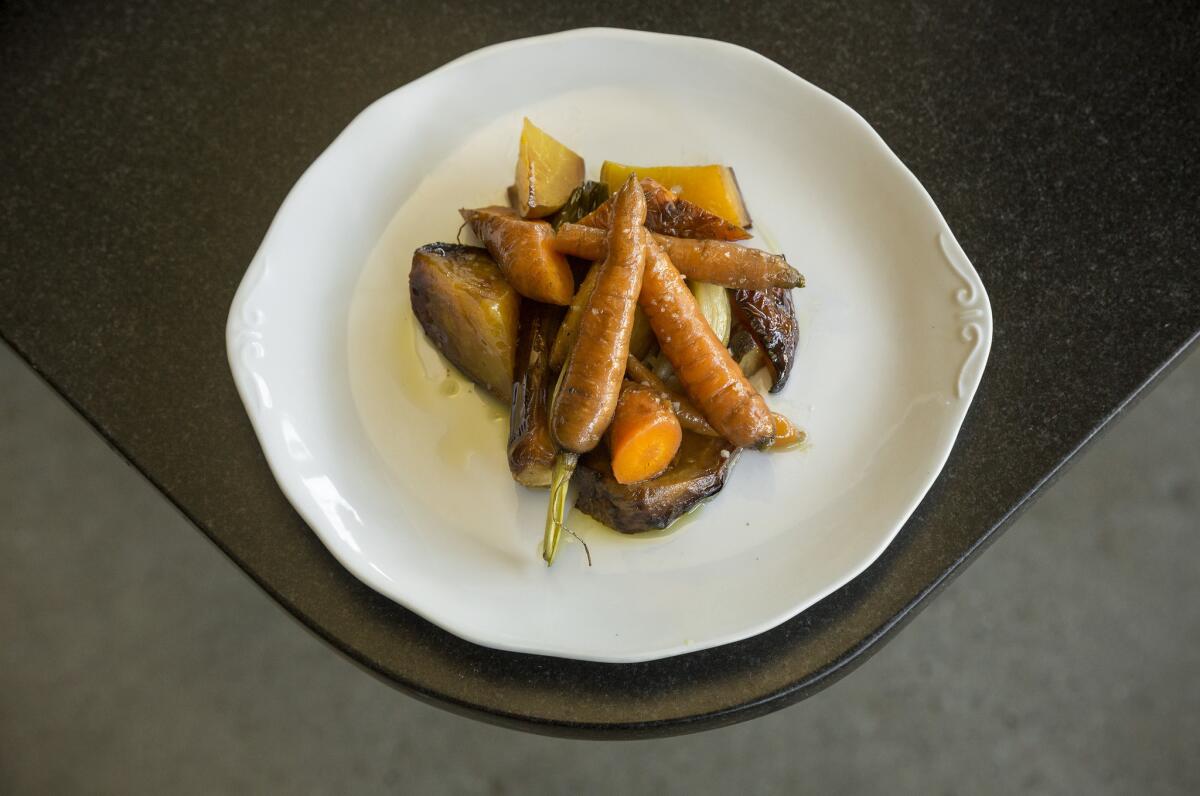
Is the pasta good? At a Bologna-style restaurant it had better be — the fresh pasta from the area is generally considered the best in Italy. And Samson’s pasta here is as good as the sturdier Campagna-style pasta he makes at Sotto. The noodles are thin and floppy, ephemeral but with enough of a pronounced bite to stand up to long-simmered ragus, eggy but not overwhelmingly so, and have a texture that can seem almost alive when they are served under a pale, meaty Bolognese sauce. The ping-pong-ball-size tortelloni, stuffed with the traditional mixture of ricotta and chard, could illustrate the concept of Italian dumplings in a textbook. The tiny tortellini in brodo have a lovely flavor of Parmesan cheese and cured pork, although they tend to be a little dry.
The crisp, boned chicken cooked under a brick is good, but if you have eaten at Sotto, you know about Samson’s obsession with pork, generally sourced from small producers and cooked in a way that emphasizes the flavor of the meat — Sotto’s porchetta is among the very best in town. If anything, the preparations at Rossoblu are even simpler than they are at Sotto. A pork shoulder is braised with milk until the meat seems almost to have caramelized from within. A mixed grill includes a gloriously fatty belly-on pork chop and a splendid sausage that tastes of nothing but meat, salt and fire. The golden-skinned suckling pig — pick your part; shoulder, rib or head — is almost too soft, too strong until you remember to tame its animal flavor with a bit of coarse salt.
You will probably want to order the coal-roasted vegetables — the tiny, juicy turnip may be the best thing you will taste all night — and probably the crunchy fingerling potatoes cooked with sage and a splash of balsamic vinegar. You will nod in the general direction of the rice tart with pluots or the gelato of nectarine and mascarpone. You may kick down a glass of sweet Albana wine made from dried Emilian grapes. But on the ride home, you are still going to be thinking about that sack. You wonder whether you can persuade somebody’s Bolognese grandmother to sew you one.
Rossoblu
L.A.’s Italian renaissance continues with chef Steve Samson’s pasta and live fire restaurant.
Location: 1124 San Julian St., Los Angeles, (213) 749-1099, rossoblula.com.
Prices: First courses $12-$17 (salumi plate $25); soups and pastas $14-$25; main courses $26-$48 (steak $120); vegetables $9-$12; desserts $8.
Details: Dinner Sun. and Tues.-Thurs., 6 p.m. to 10 p.m.; Fri.-Sat., 6 p.m. to 10:30 p.m.. Credit cards accepted. Full bar. Valet and plentiful street parking.
Recommended dishes: Salumi plate; grilled oysters; chard tart; tagliatelle Bolognese; mixed grill; coal-roasted vegetables.
More to Read
Eat your way across L.A.
Get our weekly Tasting Notes newsletter for reviews, news and more.
You may occasionally receive promotional content from the Los Angeles Times.
